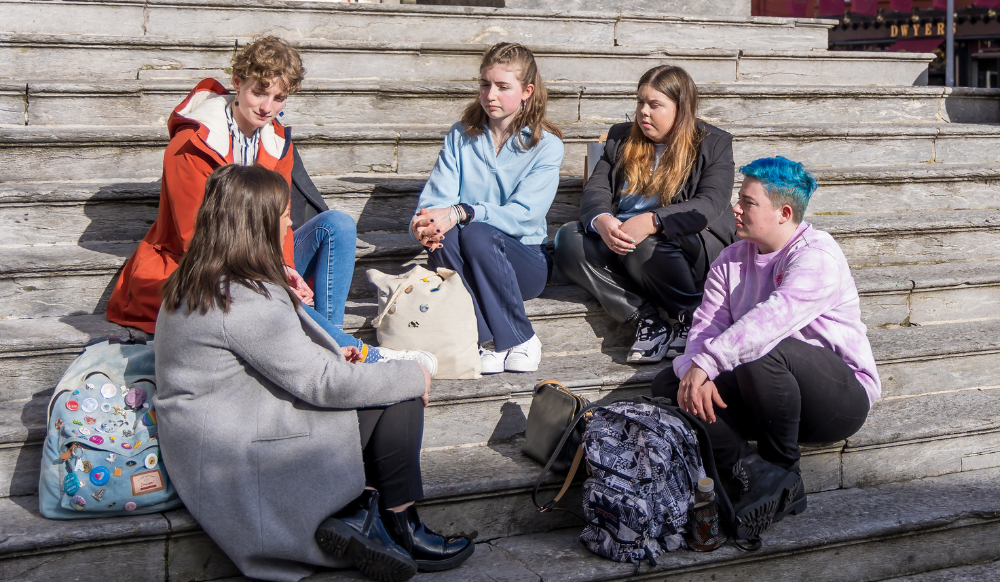Here are some things which may be helpful for you to support your young person going back to school or college this year.
Empathy and compassion
Feeling stress and anxiety at this time is very understandable. Your young people’s concerns need to be heard and validated. Avoid diminishing the worries that a young person might come to talk to you about. Watch for inadvertently criticising the behaviours which may manifest as a result. Listen, acknowledge and normalise the concerns your young person has.
Gently challenge the worries
A common response to the discomfort of anxiety is avoidance. While understandable, try to not let this become an established habit. Anxiety is temporary, and it can be useful to remind our young people of this. It may feel uncomfortable, but it will pass.
Set small goals to help your young person begin to challenge the anxiety. Go out for short periods and build this up. Highlight strengths and provide encouragement. Read more about supporting young people with anxiety.
Modelling behaviour
Young people often look to parents’ behaviours and coping styles to develop their own ways of managing stress and anxiety. Be mindful of the language being used and how you yourself respond to anxiety.
If young people can observe the adults around them to be calm and rational, it can have a really positive effect. Model healthy self-care and coping strategies. Perhaps even invite your young person to join you where possible, like going for walks.
Help to contain the worries
Encourage openly communicating worries with you. But in some cases there is a danger that constant reassurance-seeking can have a negative impact with regard to self-management of anxiety. If you are continually reassuring, it can inadvertently justify fears and worries. It is therefore important to try to minimise the amount of time spent doing so.
Depending on the age of the young person, it might be helpful to set aside some specific ‘worry time’ when they can share worries with you. Outside of that, they are practicing self-management and developing their own capacity to cope.
Externalise the anxiety as something separate from the young person and perhaps even give it a name. This can be very effective in boosting a young person’s self-efficacy.
Scope out the school/college response
Schools and colleges are doing their best to start the new academic year in earnest and create the best study environment they can. Make sure you and your young person have familiarised yourself with their new environment.
These things may sound obvious but being as prepared as possible can help limit anxious feelings.





